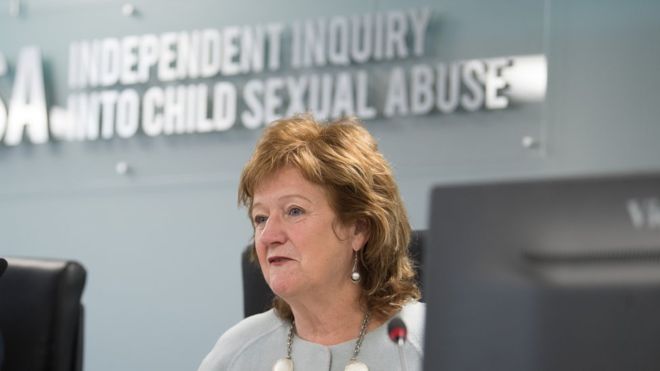
Once again, a familiar theme is emerging in the hearings of IICSA this week, the story of repeated failures of senior people in the Catholic Church to identify with victims and survivors. A similar pattern of detachment from the pain and suffering of survivors was also seen among senior Anglicans when the Diocese of Chichester was under scrutiny. It seems to be a part of the institutional life of Churches all around the world. Those at the highest levels of authority in churches seem to have the greatest difficulty understanding the struggles of those who may suffer at the bottom of the structure.
As I write these words, there is playing in the background live testimony from the IICSA hearing. It is being made by a Catholic woman who has struggled to be heard with her complaint against a priest who abused her when she was a teenager. She then felt re-abused by allowing the Church to carry out an internal investigation into her case. After a great deal of effort, she eventually had her complaint about incompetent and insensitive handling by the Westminster Diocese upheld. The texts of letters of apology sent to the same survivor were also read out. The sentiments of these letters could be described at the very least as cloying and unconvincing. There seems to have been in these ‘apologies’ a complete inability to enter imaginatively into the world of the victim/survivor and a refusal to recognise what has taken place in the life of the abused individual.
The crucial word in my reflections is the word imagination. Whether it was the work of bishops, legal officers or advisers being described, many of them, operating inside the institutional structure, appeared to be suffering from an identical deficit of imagination. The rule seems to be, whether in Anglican or Catholic circles, that if you work for the centre, you routinely withdraw empathy and compassion from the abused, the one who threatens the good name of your paymaster. Defence of the structure and promoting its interests seems to win every time over feeling and understanding the needs of a survivor.
Imagination is a vital human quality. It allows us to conceive how things can be different. The gift of imagination is what enables us to escape from the predictability of our assigned roles in life and think outside the box. And yet so many people have been conditioned to fear ever doing things or thinking things differently. This is not just true of people whose tasks in life are to be subservient and obey orders. It also applies to people at the very top of career pinnacles. It could be claimed that people everywhere know the experience of being constrained by their roles so that they do not really experience freedom. As I write these words, I am thinking of the words of a Gilbert and Sullivan song which begins ‘I am the very model of a modern Major General’. This song carries with it the implication that Major-Generals are all expected to behave in a predictable and identical way. To fit the model perfectly is all that is expected of us. It is the highest possible ambition. One can change the aphorism of Descartes into one that says ‘I fit in, therefore I am.’
Fitting in, becoming the model parent, worker, director or bishop is the place where most people want to be. It is a variation on the universal need to belong. What is true of individuals is also true of institutions. Predictable institutions are far more comfortable places to belong to. A Church like the Catholic Church has a great deal of appeal in its offer of being a place that seldom changes. To have total predictability in one’s institution or one’s life is a good selling point and it works for many people. The IICSA hearings over the past couple of days have illustrated powerfully the power of predictability and the attractiveness of institutional/individual defensiveness and inertia. We hear once again that an institution, here the Catholic Church through its officers, has acted with no imagination towards a suffering individual. It has rather, almost mechanically, sought to apply defensive legal principles instead of a human caring response. Any institution behaving in this way, will always fail to be a place of human freedom, spontaneity and deep humanity.
One ray of light did appear in the gloom of the Catholic response to IICSA. At some point in the proceedings Cardinal Vincent Nichols made the admission to the hearing that after his visit to a meeting in Rome in February this year, he had written to his fellow bishops stating “For me what happened was that I began to see what we were talking about from the perspective of the victim/survivor.” The lead council to the Inquiry, Brian Altman QC, drew out in particular the three short words ‘began to see.’
From Cardinal Nichols’ use of three words, we can begin to reconstruct how far we have to go to recreate and repair the deficit of imagination that operates widely within our churches. Cardinal Nichol’s confession is remarkable. The implication seems to be that he and bishops of any church, who appear not to care about survivors, are victims of an empathy deficit of some kind. One wants to ask two question when this apparent syndrome, the imagination deficit, appears. Are bishops appointed to care for sees because they are a safe pair of hands to preserve the material welfare of plant, buildings and wealth? In other words, are the managers/custodians preferred to pastoral/prophetic types who might, God forbid, squander wealth on people? A second question is harder to answer but it emerges from the heart of this blog’s concerns. Does the very fact of becoming a bishop do something to one’s capacity to care? Do bishops typically become so caught up in administration and the exercise of their authority that, over a period of time, they cease to relate pastorally to their flocks? The questions are asked, not because there is a definitive answer to either of them but as a way of starting to understand the Cardinal’s three words in relation to survivors.
I first met Vincent Nichols at an ecumenical conference in the mid-80s. He made an impression on me then as a good man and I have followed his career from a distance with interest. I believe that the deficit of imagination that is revealed in the current hearings can be largely laid at the door of the institution that he and his fellow bishops oversee. His long-time immersion in an inflexible hierarchical structure has in some way damaged his humanity and created a tragic deficit of love and empathy inside him. That also may be the simple explanation for the extraordinary gulf that we find across the churches between safeguarding and the task of healing/caring for survivors. I am by no means the only commentator to notice the massive discrepancy between money spent on prevention training and the money spent on supporting survivors. Is it because the leaders are chosen to conserve wealth and plant so that they become detached from this particular manifestation of human suffering?
To return to the key idea of the piece, imagination deficit. When there is in us a functioning imagination then we can be people who can understand the suffering of others and respond appropriately. If bishops and other leaders in the Church ever fail in this task of exercising imagination, such victims/survivors can suffer greatly. Now that Cardinal Nichols has had the humility to admit that he is on the bottom step of understanding the needs of survivors, perhaps other can be encourage to follow him. The gift of imagination is the key and prerequisite to effective and powerful love and it may yet heal the Church.





